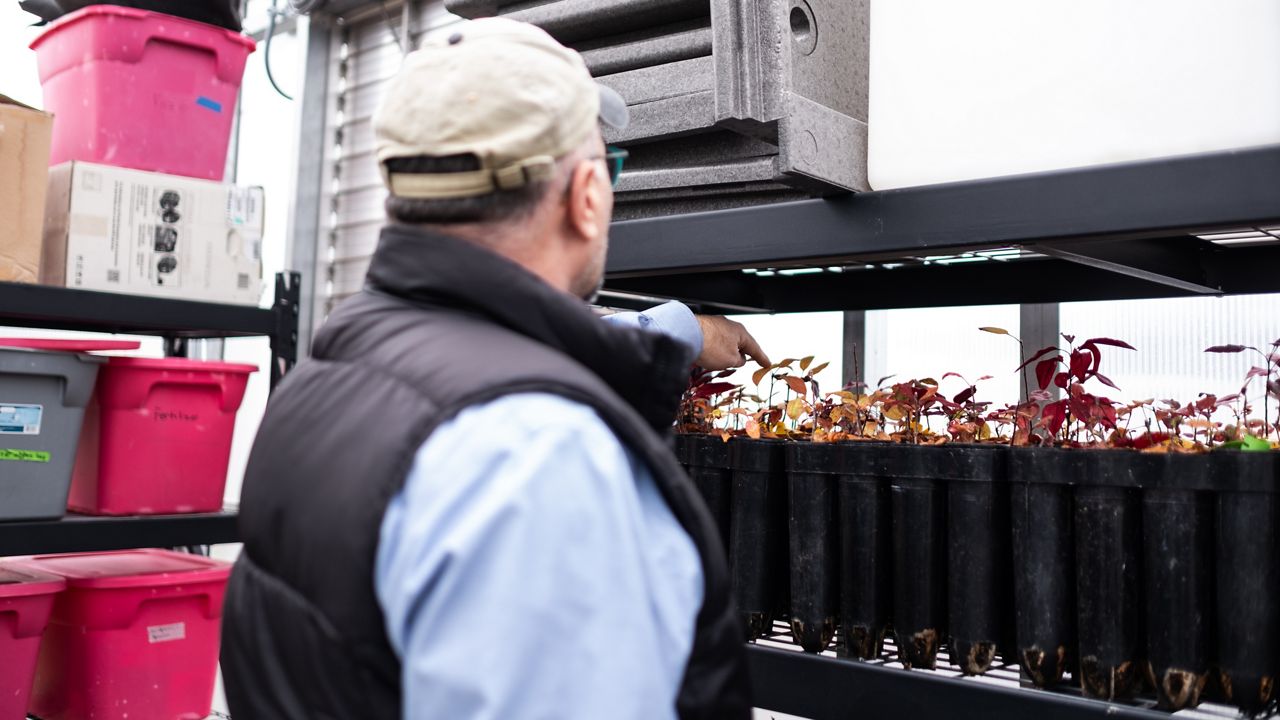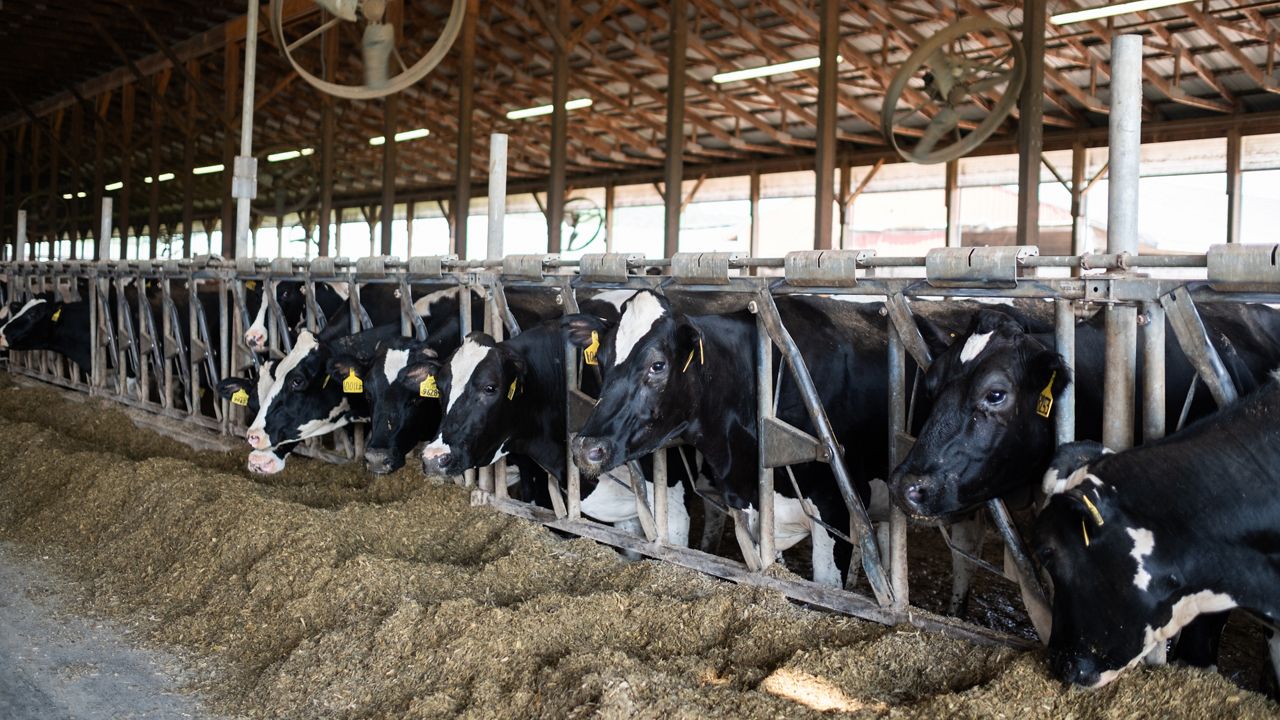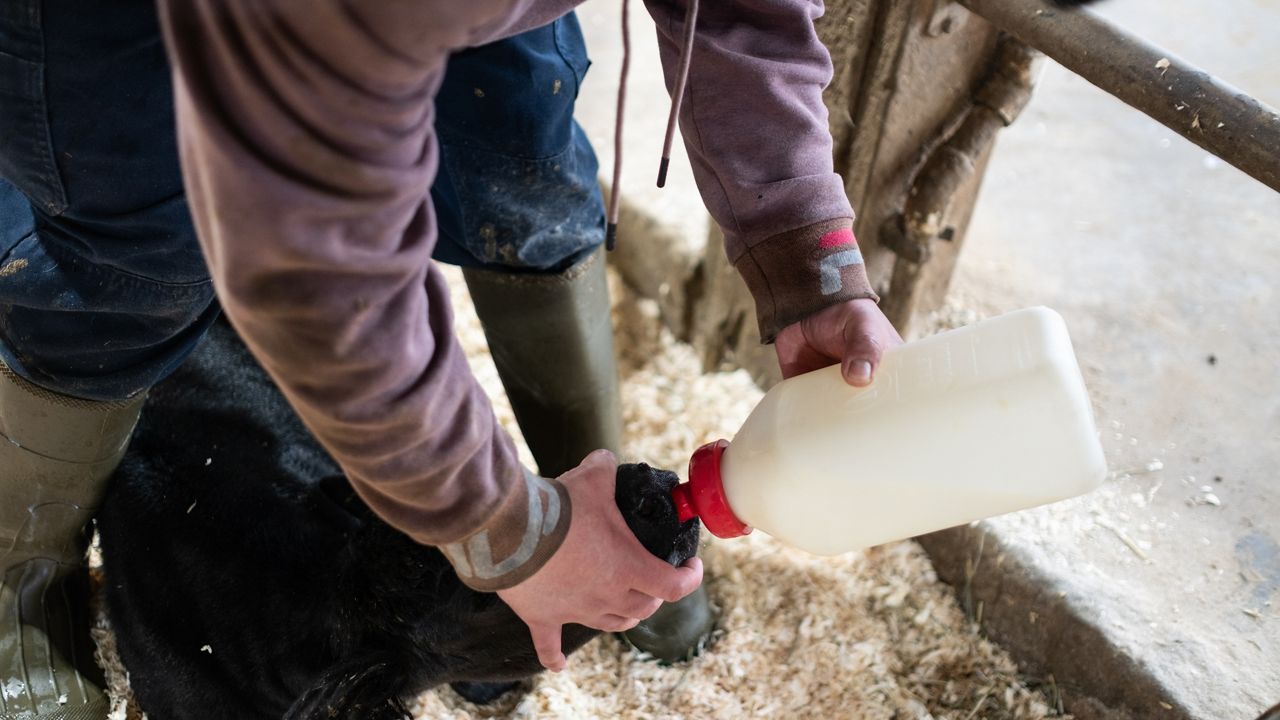A Cornell-grown apple rootstock is showing promise at reducing the impact of harmful bacteria, helping growers produce more apples each year.
“Most people don't realize that an apple tree is composed of two varieties. The variety that has the fruit above ground and the second variety for what we call the rootstock,” said Terence Robinson a professor of horticulture at Cornell University.
The two are joined near the ground by a graft union between the variety of apple tree that produces fruit and the rootstock, Robinson said.
Geneva, the rootstock developed and patented by Cornell University, has been modified into 15 different versions to help certain apple trees with a host of issues, including fire blight.
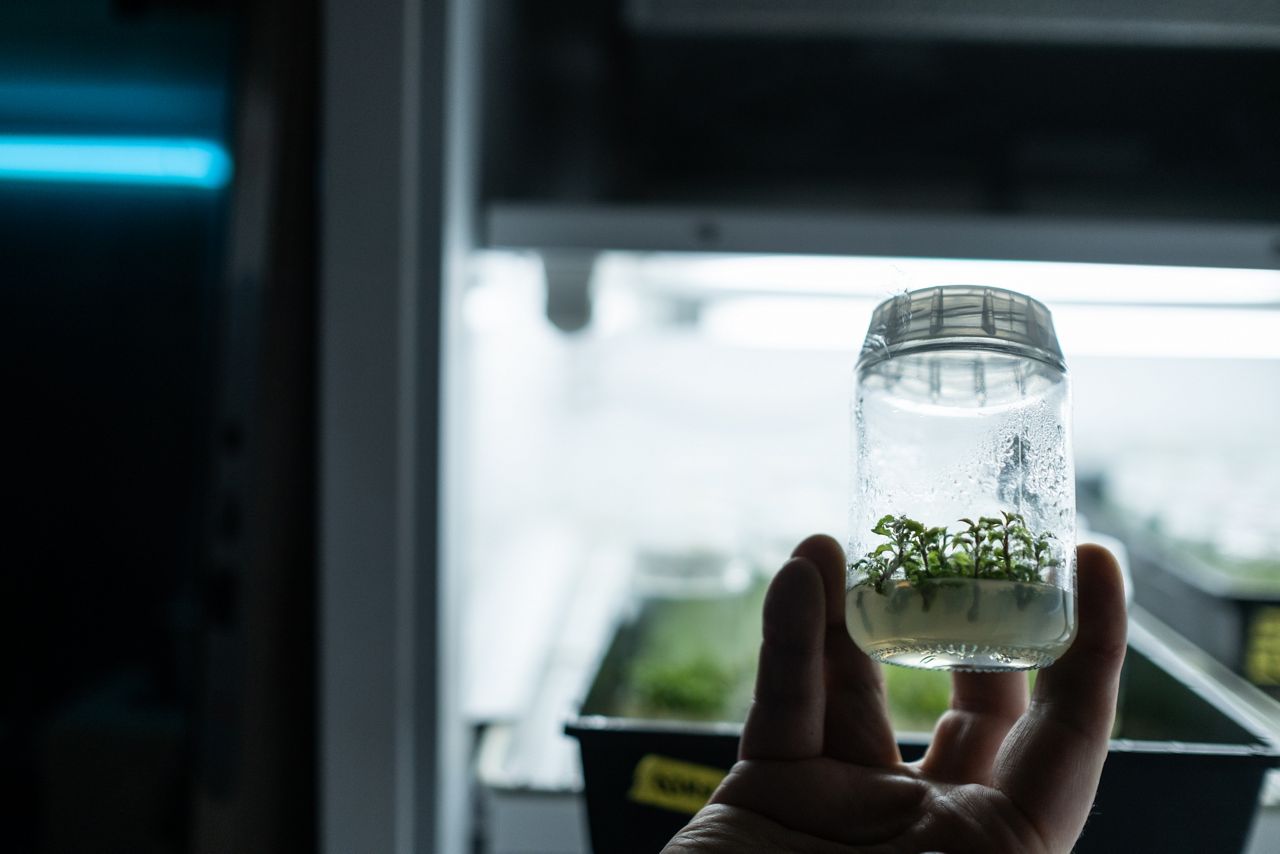
“When a tree gets infected with fire blight bacteria, it affects the blossoms, but the bacteria then gets into the tree and is moved down until it hits the rootstock then it kills it. Without the rootstock, the tree dies,” Robinson said.
The Geneva apple rootstocks that are resistant to fire blight allow growers to trim off areas of a tree that are infected with the bacteria instead of the bacteria killing the entire tree.
“Rootstocks have become the most critical part of an orchard and trying to keep it alive,” Robinson said.
Additionally, thanks to these rootstocks, apple growers have adapted to growing dwarf trees that are smaller in stature but produce the same size and amount of fruit. By doing so, they are able to grow more bushels per acre.
“They’re all resistant to fire blight, they’re all very productive, and they’re all dwarfing to different degrees,” Robinson said.
The three new rootstock varieties released in 2023 address issues for Snapdragon trees, help organic apple growers, and the third strengthens graft unions.
“Geneva 257 seems to be perfect for Snapdragon, it has enough vigor that grows a tree well and it also is very high-yielding. Snapdragon is a smaller size apple, and this one gives it slightly bigger fruit,” Robinson said.
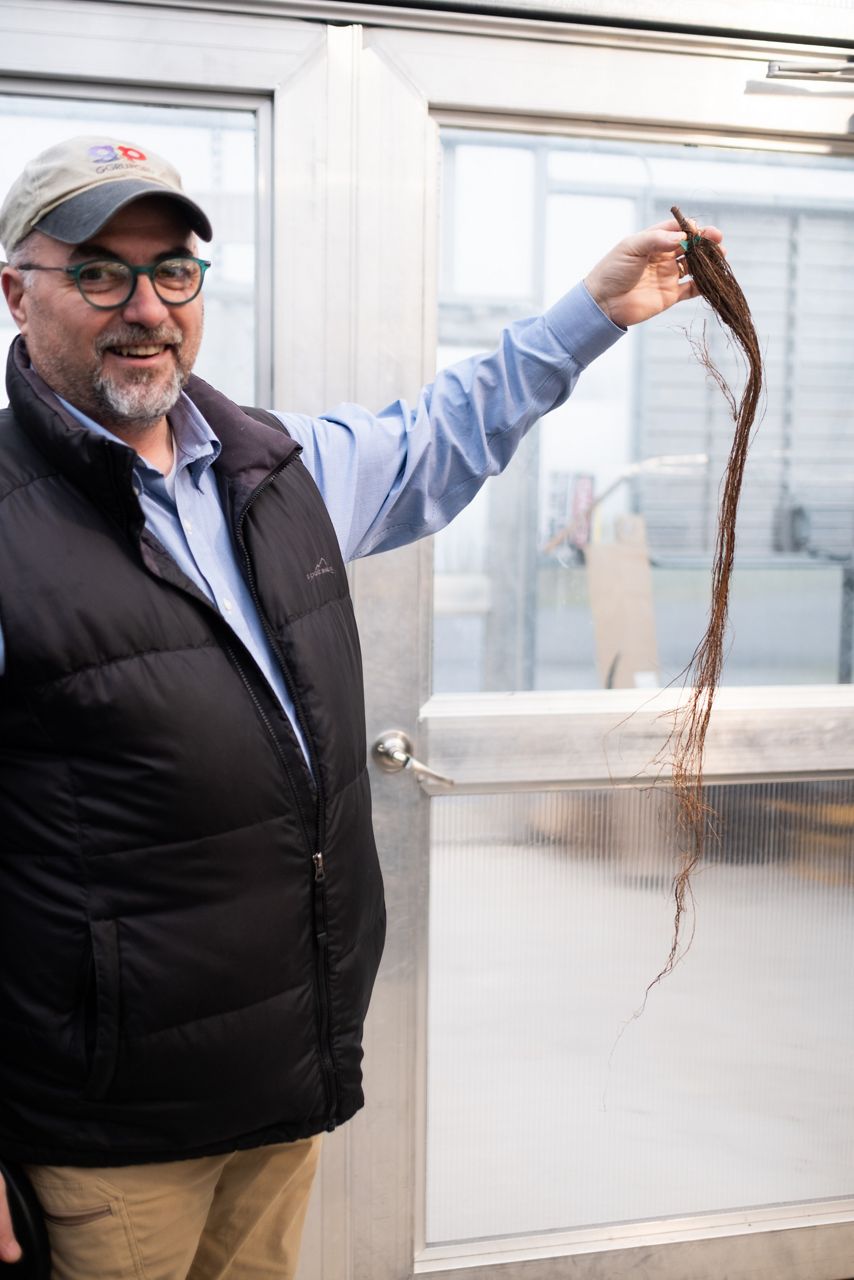
Snapdragon is a variety that was developed by Cornell University and is proprietary to New York.
“Geneva 257 is really for New York growers since they’re the ones that can grow Snapdragon,” Robinson said.
Apple trees take three years to produce a yield, so the process of determining the success of these varieties is a slow one. Nurseries will begin growing saplings with Geneva 257 this year.
“Then a grower in New York could plant it in 2026. It’s just a slow world that we live in trying to get this out there,” Robinson said.
The other two rootstock varieties, Geneva 484 and Geneva 66, have their own unique properties.
“Geneva 484 was specifically selected to help organic apple growers because it has multiple disease resistances, but also in organic production, one of the elements that is difficult to gather for the root systems is nitrogen and so this rootstock seems to be very efficient at grabbing nitrogen from the soil,” said Gennaro Fazio, the project’s geneticist.
Geneva 66 has shown to have a strong graft union.
“It has some of the same properties with disease resistance and everything else, but what is impressive is the graft union. We had some issues with some of the grafts breaking, and this one shows up to be pretty strong,” Fazio said.
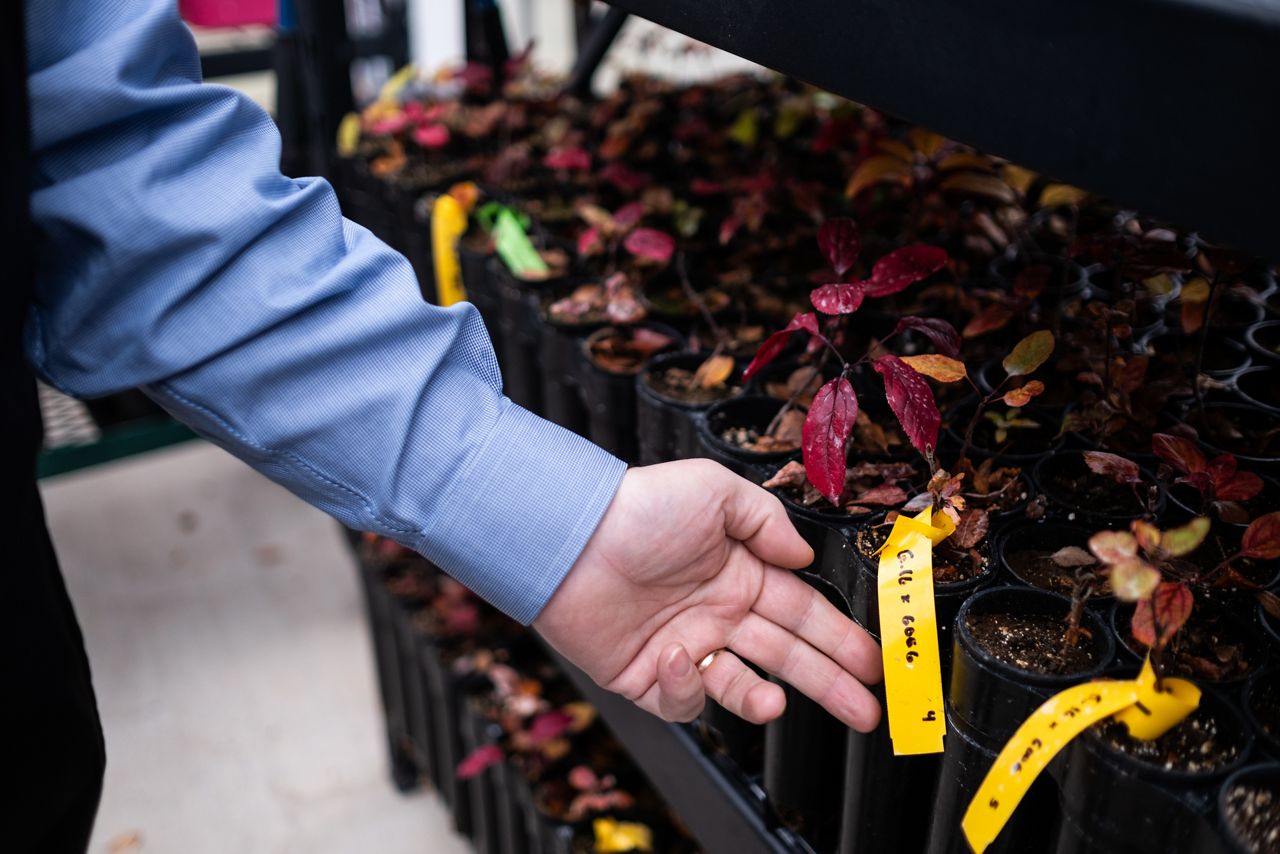
Of the 15 rootstocks they have developed, none are perfect, and they all have their own weaknesses, but the goal is to develop specific rootstocks for a range of varieties.
“We continue to search for improved ones over the ones that we released, that’s why we’ve continued to release additional ones every few years when we find them,” Robinson said.
There is no other program in the U.S. that develops apple rootstocks, and the Geneva rootstock accounts for 12 million to 35 million apple trees planted worldwide each year.
“It’s likely that one of the apples that you have eaten in the past week or so have been grafted on Geneva rootstocks,” Fazio said.





